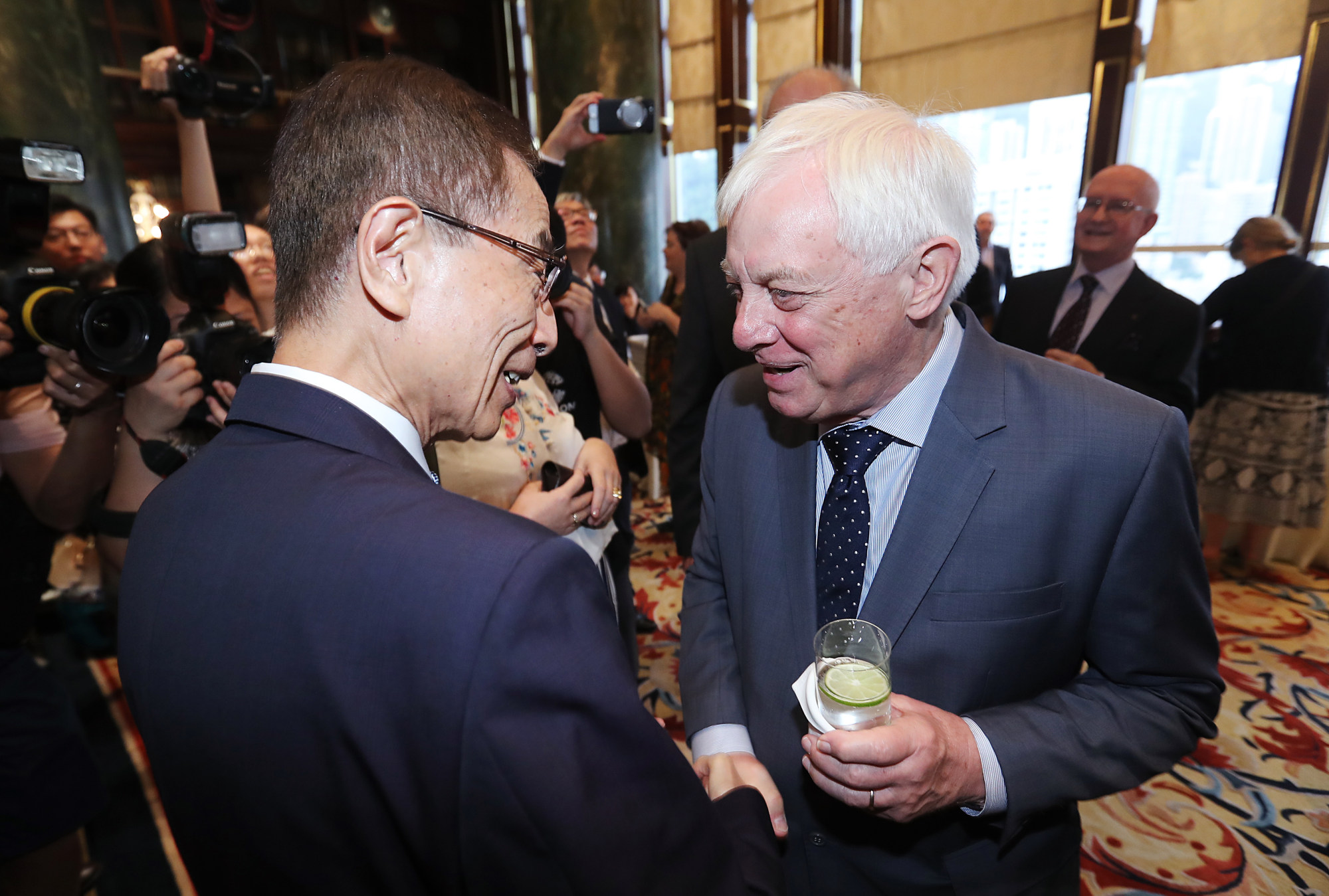
The tragedy of Chris Patten, our last British governor
- His democratic reform before 1997 – well-intentioned if impulsive and poorly thought-out – was ultimately superseded by local reforms that were far more democratic and sanctioned by Beijing
I must confess I have always had a soft spot for Lord Patten, the last governor of Hong Kong. This is despite my belief that he ultimately did more harm than good. I can still remember the youthful and quick-witted Patten meeting the local public on stage at City Hall in Central during his first year in office, a complete break from the hitherto aloof British mandarins sent from London to administer the Far-Eastern colony. That was billed back then as an unprecedented occasion in which the governor openly took questions from the public about what his policies would be and how he saw Sino-British relations as the 1997 handover date approached.
It is so sad today to see an ageing Patten, once so knowledgeable, funny, intelligent and a master of policy details, taking every opportunity to politicise anything, on every occasion about Hong Kong, including this Lunar New Year, at the service of a highly questionable group in Britain.
Whenever possible, HKW and its chief, Benedict Rogers, now march out Patten for another heavy dose of China denunciation. Don’t get me wrong; I would love for Patten to comment on Hong Kong, critically or not, but he might enjoy far greater credibility if he would speak as himself rather than being associated with such an overtly partisan group as HKW and the people who run it.
Chris Patten’s Hong Kong Diaries take us behind the scenes of 1997 handover
Kevin Rudd, the former Australian prime minister and new ambassador to the United States, made himself far more trustworthy as an independent “old China hand” and commentator during his years in the political wilderness.
Alternatively, Patten could have taken after the late Murray MacLehose, the city’s greatest post-war governor, by keeping his mouth shut once he left office.
The problem is that Patten has enormous propaganda value for the anti-China hawks in Britain, the US and Australia. His democratic reform before 1997 – well-intentioned if poorly thought-out and ultimately superseded – earned him such colourful monikers from the Chinese communists at the time as “a sinner for a thousand years”, “a prostitute” and a “triple violator”. Ever since, these have been repeated endlessly by Anglo-American commentators to show how Patten – and Britain – tried to give democracy to Hong Kong at the 11th hour but were immediately subverted by the communist regime in Beijing.

This is a lie or if you like, a myth; the historical record can easily prove it. Unfortunately, how many people in the West actually know the history, let alone lived through it? Those who ought to know better are happy to propagate it.
So you have a former publisher of the hard-right Wall Street Journal repeating them: “These Chinese Communist Party curses [sinner, prostitute, etc] testify to Chris Patten’s performance as the last British governor of Hong Kong and Cassandra of its recent destruction at the hands of China’s leaders in Beijing. Mr Patten’s The Hong Kong Diaries, compiled from the journal he kept during his 1992-97 governorship, details his persistent but ultimately failed efforts to secure the continuance of Hong Kong’s freedoms.”
First of all, it’s not “a sinner of a thousand years”, but “a thousand eras or epochs”. Linguistically, as a metaphor and a common saying, the communist curse doesn’t absolve Patten after 1,000 years, but rather damns him forever.
Hong Kong in the 1990s: the (sometimes welcome) end of an era
On a more serious note, though, Patten was no Cassandra. His problem – and tragedy not only for him but for many Hong Kong residents – wasn’t that people ignored him but that they listened to him all too well and for far too long. Effectively, he helped articulate the inflexible or intransigent pan-democratic agenda that eventually led to catastrophe in 2019.
In the last two decades, the indigenous expansion of the electoral franchise went beyond anything put in place by Patten. Directly elected seats in the legislature doubled, the trade-based (also called functional) seats were subsequently maintained at 30, the number reached by Patten but briefly nullified for just one year after the handover; and all the electoral college seats were abolished. This is not counting the five so-called super-seats that were directly elected but confusingly classified as functional or trade-based seats.
In fact, during the Occupy protests in 2014, universal suffrage was almost achieved but it proved to be the worst time for a rational communal discussion. I have written on this history many times before, so I won’t go into more details. While admitting the city’s recent history is highly contested, I recommend Hong Kong’s Indigenous Democracy: Origins, Evolution and Contentions, by Professor Sonny Lo Shiu-hing of the SPACE programme of the University of Hong Kong.

So what went wrong?
Well, let’s start with an analogy or two. When you play the block-building game, Jenga, the first few moves are easy and can be done quickly. Towards the end, extreme caution is needed, or the whole structure falls down.
Rather than preserving and slowly building an investment portfolio, people often risk – and end up losing – everything.
As once one of the world’s freest cities, Hong Kong had everything going for it. Politically, it was already free. But Western liberal democracy favours procedural issues and elections, while it happily ignores substantive or actual freedoms.
That was the democratic lesson taught by all the Pattens, Martin Lees and Benny Tais of the world and spread among Hong Kong people, especially the young who have no experience of Western colonialism, or of democracy. It was all or nothing; universal suffrage now or never.
If that was to be the only choice for Beijing, of course it said never.
During the height of the 2019 riots, a former close family friend and diehard “yellow” protester warned us that “the Chinese Communist Party is a monster, it’s so horrifying”.
British leader advised against attending 1997 handover, archives show
Well, if you really think the CCP is such a horrifying monster, shouldn’t you tread carefully and not exploit every opportunity to poke its nose and, as the Chinese saying goes, “provoke the ghost to get sick”?
Needless to say, she defriended us there and then. You provoke the ghost, you get sick. Is it the ghost’s fault? You put your wallet on your dashboard and you get robbed. Yes, the robber is still guilty, but you are still responsible for your foolishness and carelessness.
Urged on by Western democracy slogans from the likes of Patten, many people in Hong Kong forgot that preserving what you had was more sensible than fighting and losing it all.
And now, having needlessly risked and lost much, they are told by people such as Patten that it’s not their fault. You are all victims. It’s the Chinese communists who are the rapists, the criminals, the dictators. That’s one way to look at it, if it makes you feel better.
In the end, it’s always the Chinese people who have to clean up the mess after you. But I have every faith that they will clean up and rebuild Hong Kong, with or without you.

